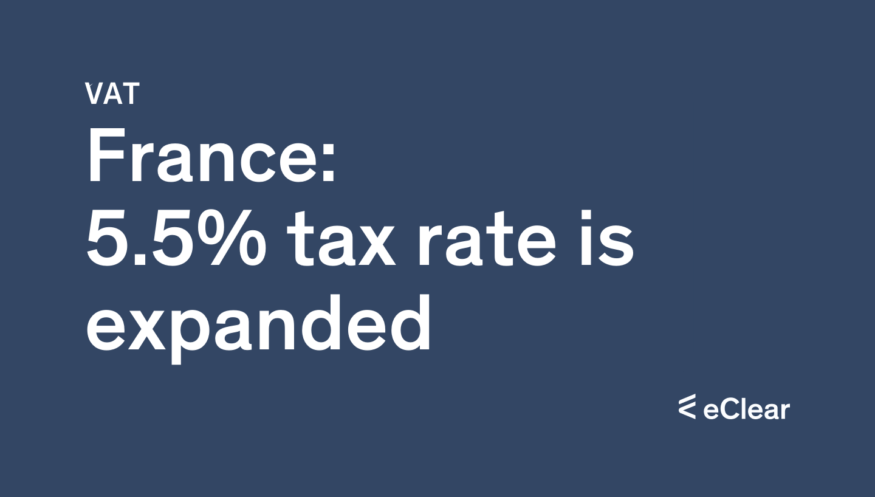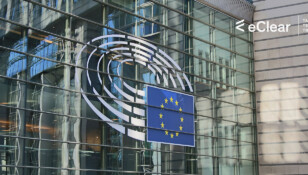Extension of the 5.5% tax rate
From 1 January 2023, the 5.5% tax rate will be extended to the following supplies:
- Food intended for consumption by food-producing animals.
- Of products of agricultural origin, fisheries, fish, or poultry farming.
- Extension of 5.5% VAT rate for COVID-19 protection materials and products: In the context of the health crisis related to the coronavirus, the 5.5% VAT rate has been extended to masks, protective clothing and hygiene products that meet specific standards. This measure, originally due to expire on 31 December 2021, has been extended until 31 December 2022. The 5.5% VAT rate application to materials and products for protection against Covid-19 has been extended again until 31 December 2023.
VAT on pre-payments for the delivery of goods
If a pre-payment is made before the actual delivery of goods, VAT has been due since 1 January 2023 when the pre-payment is received and in the amount of the pre-payment.
“VAT groups”
Taxable persons who have their place of business or a fixed establishment (or, in the absence thereof, their domicile or habitual residence) in France and who are closely linked financially, economically and organisationally may apply to form a single taxable “VAT group”.
To establish a VAT group (single taxable person), the members of the group must appoint a representative charged in particular with formulating the option to start a VAT group to the “Service des impôts des entreprises” (SIE) or the “Direction des grandes entreprises” (DGE) on which the group depends and with submitting a list of the members of the group. This list must be submitted annually. The deadline for submission has been brought forward from 31 January to 10 January as of 1 January 2024.
The date on which the tax debt is incurred
Since 1 January 2023, companies in France have to pay VAT on down payments for supplies when they receive payment, as the previous regulation, according to which this was only the case at the time of the actual execution of the supply, is no longer valid under EU law. Payments on account for services taxable in France were already taxable when they were received.
Since the previous French regulation, according to which advance payments on supplies were only taxable when they were made, is no longer valid in the EU, France had to adapt this regulation. Article 65 of the VAT Directive states that payments on account for supplies are subject to VAT at the time they are received.
At the same time, the service recipient can claim the input tax deduction.
E-Invoicing and E-Reporting
France plans to introduce the obligation to e-invoice and e-report VAT data gradually. From 1/7/2024, large companies with an annual turnover of more than 1.5 billion euros or a balance sheet total of more than 2 billion euros will have to issue their invoices electronically.
This concerns all supplies and services that fall under the French VAT rules and occur between businesses established in France. Businesses outside France are only affected if they have a permanent establishment in France and supply services through it.
Correct invoicing
For an invoice to be valid, it must contain specific, precise details, and the issuing company must be able to prove the following:
- the authenticity (ensuring the identity of the supplier or the issuer of the invoice);
- the integrity of the content of the invoice (that the content has not been altered);
- the readability by a human being
There are various methods that businesses can use to ensure the production of correct invoices and to prove their invoices’ authenticity, integrity, and legibility. You can:
- Issue invoices that comply with the provisions of the French General Tax Code (Code Général des Impôts, CGI), usually referred to as “EDI fiscal”;
- Issue invoices with an electronic signature and a level 2** certificate by the General Security Standard (Référentiel Général de Sécurité, RGS);
- Establish a documented and reliable audit trail (Piste d’Audit Fiable or PAF).
The French Finance Act for 2023 introduces the qualified electronic stamp procedure as a new method for securing invoices.
Companies with VAT exemption, recapitulative statements and European service declarations
Businesses benefiting from the VAT exemption are now equally exempt from the obligation to prepare recapitulative statements for intra-Community supplies of goods.
Instead, they must continue to submit European Service Declarations (DES) for selling services to taxable customers established in any EU country apart from France. The submission of this declaration can be made in paper form.







